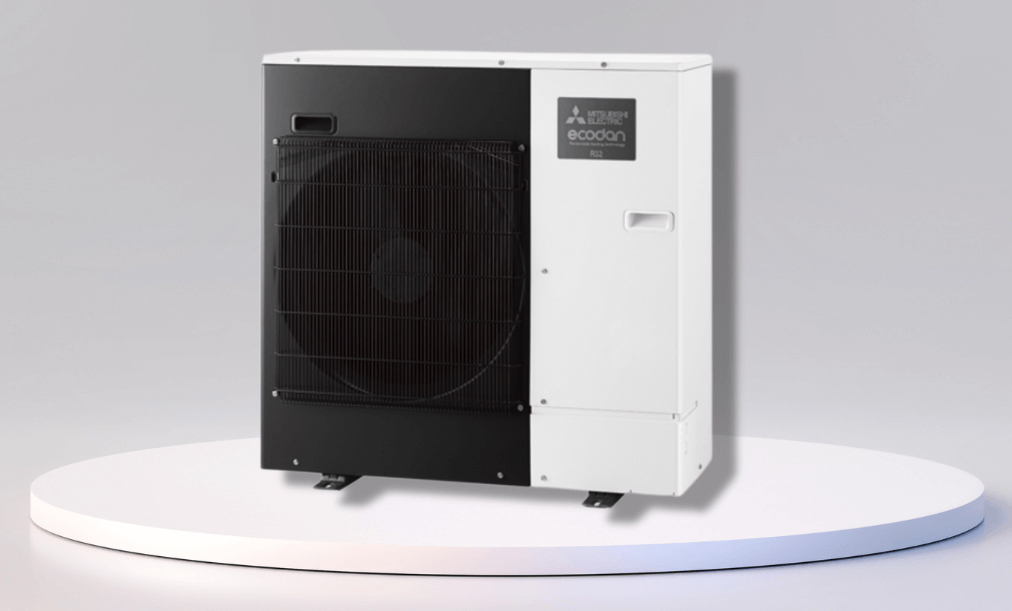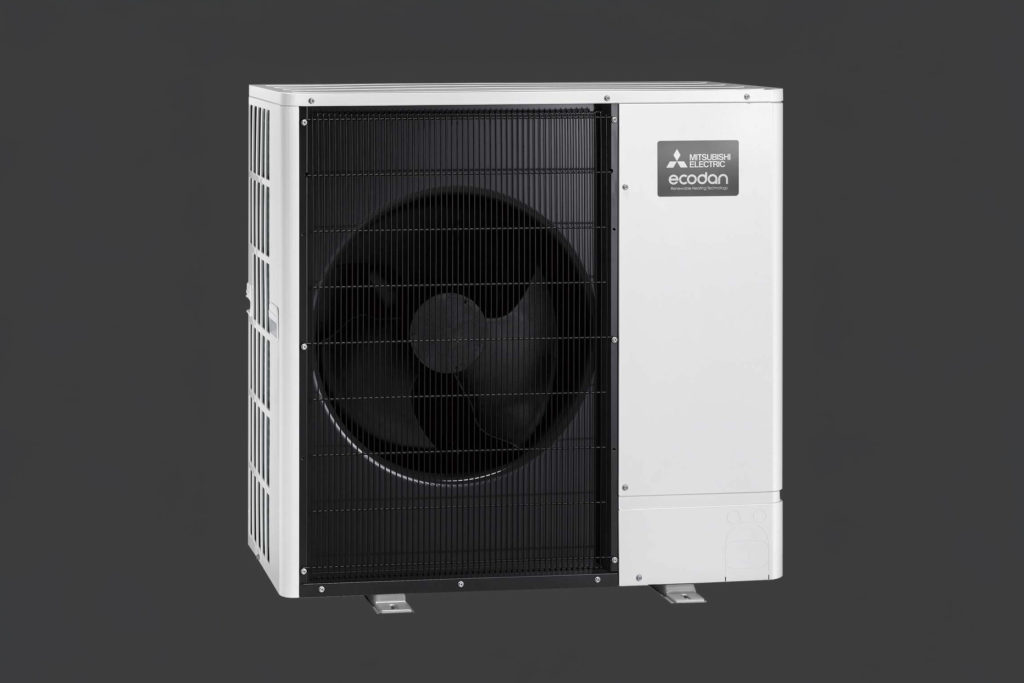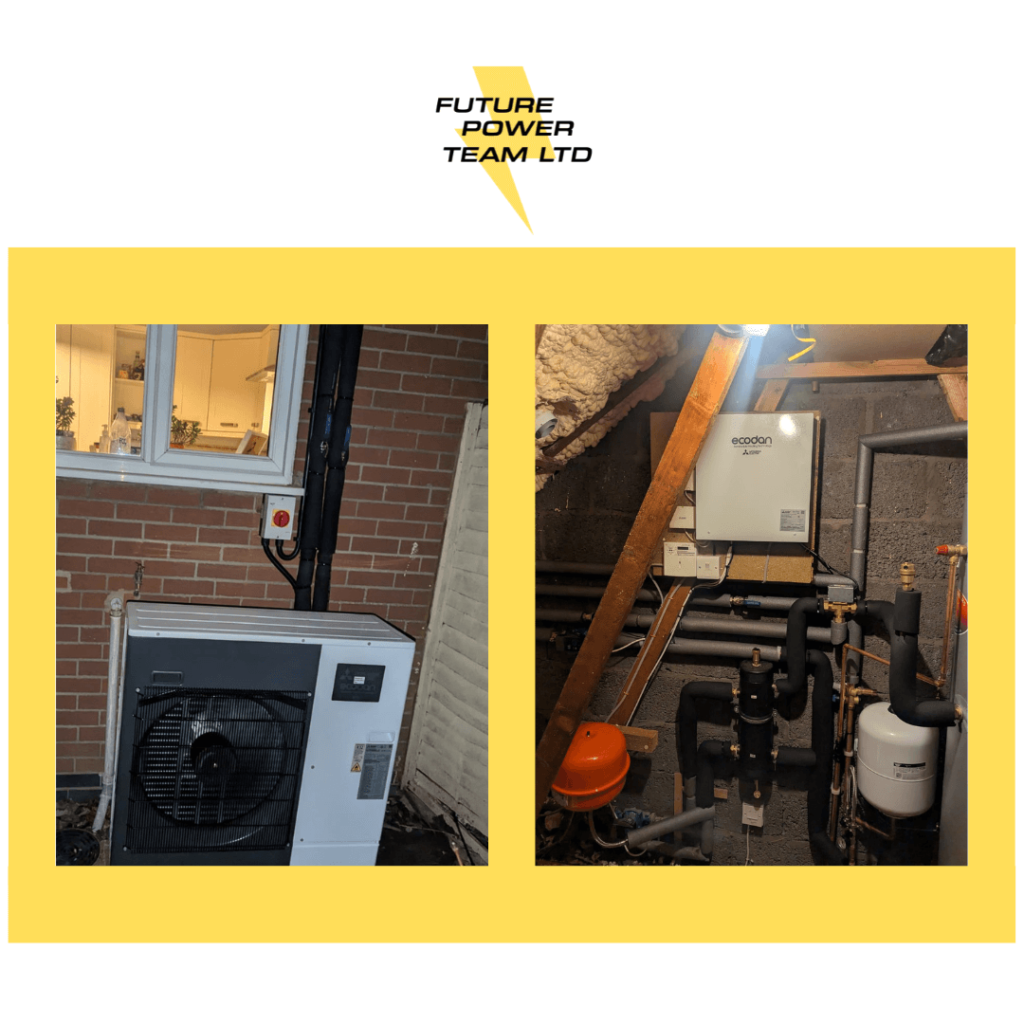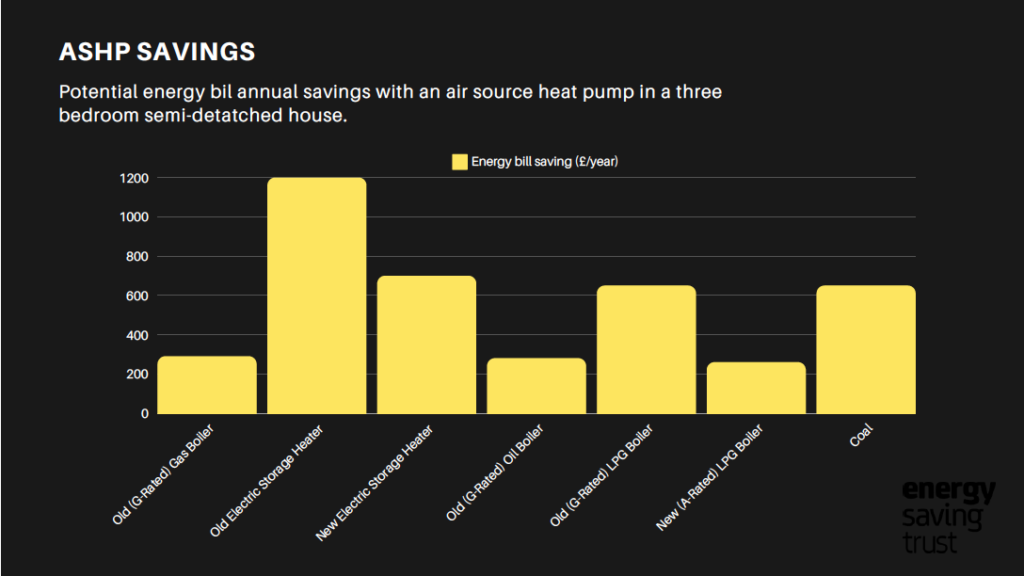
What are heat pumps?
Heat pumps are energy-efficient systems that provide heating and cooling for your home by transferring heat from the air outside. Unlike traditional heating methods, they don’t burn fuel, making them a cleaner and greener option.
Why choose a heat pump from Future Power Team?
Year Round Comfort
Heat pumps provide efficient heating in winter and cooling in summer.
Low Maintenance
Modern heat pumps require minimal upkeep.
Reliable Technology
Heat pumps are designed to work effectively, even in colder climates; they can provide heat even down to temperatures as low as -25'C.
Energy Efficiency
Heat pumps are up to 400% more efficient than traditional heating systems, ultimately leading to lower energy bills;
Boiler Upgrade Scheme
Homeowners in England and Wales can receive up to £7500 towards installation through this government grant.
Compatibility with radiators
Heat pumps are ideal for homes with modern radiators or underfloor heating. They operate efficiently at lower temperatures, ensuring comfort while reducing energy consumption.
If your radiators are outdated or too small, Future Power Team will conduct a full heat loss survey and upgrade your radiators to ensure your home remains warm.

Environmental Benefits
Reduce Carbon Footprint
Heat pumps use renewable energy from the air, cutting greenhouse gas emissions.
Support Net-Zero Goals
Make a sustainable choice to contribute to the fight against climate change.
Our Heat Pumps Product Range
We stock top-quality heat pumps from leading brands.

Mitsubishi
Known for Innovation and Reliability

Samsung
Stylish, Energy-Efficient Solutions

Ideal
Affordable, High-Performance Systems
Get Started Today
Switch to a heat pump and enjoy a sustainable, cost-effective heating solution. Contact us now to learn more or schedule a free consultation.
Myth Busting
Like every product, air source heat pumps can receive bad press but usually this is down to poor installations or sales people over promising and under delivering.
Let’s address the most common disadvantages to heat pumps.
1. Upfront Costs
Installation Costs: Installing an ASHP can be expensive compared to a Gas Boiler installation.
However, thanks to the £7500 BUS grant this brings costs much more affordable. Typically an installation on a 3 bed semi will cost around £4000 without radiator changes.
The ongoing benefit of no standing charge also makes heat pumps a smart investment.

2. Efficiency in Cold Climates
Performance Drops in Extreme Cold: The Mitsubishi Ecodan R290 model has a guaranteed operating range right down to -25°C ambient temperature.
Higher Operating Costs in Winter: Just like traditional Gas central heating the running costs are much higher in winter when the heating is on compared to the summer months but this will average out over the year.
Many customers use smart heat pump tariffs that are currently available.
Get Started Today
Switch to a heat pump and enjoy a sustainable, cost-effective heating solution. Contact us now to learn more or schedule a free consultation.
3. Space and Aesthetic Concerns
Outdoor Unit: The outdoor unit is roughly 1m x 1m and can be wall mounted. During the survey we will work to find the best place for this that you are also happy with.
Noise Levels: The new ultra quiet range of Mitsubishi are so quiet when running you’ll hardly know they’re even there.
Redecorating the house: Most heat pumps are compatible with existing pipework meaning disruption levels in the house are kept to a minimum.
4. Installation Challenges
Complex Installation: Some installs may be more tricky than others but luckily Future Power Team have the expertise to overcome even the hardest installs.
Permitting Issues: Most installations fall under permitted development.


Suitability for Existing Homes
Best for Well-Insulated Homes: All heating systems run best with well insulated homes and Air Source heat pumps are no different to this.
Limited Hot Water Supply: ASHP require a hot water cylinder ranging from 170 litres to over 300 litres. On average, an adult uses roughly 45 litres per day.
Get in Touch With Us
Get a quote using our form below and one of our team will give you a callback.
"*" indicates required fields
